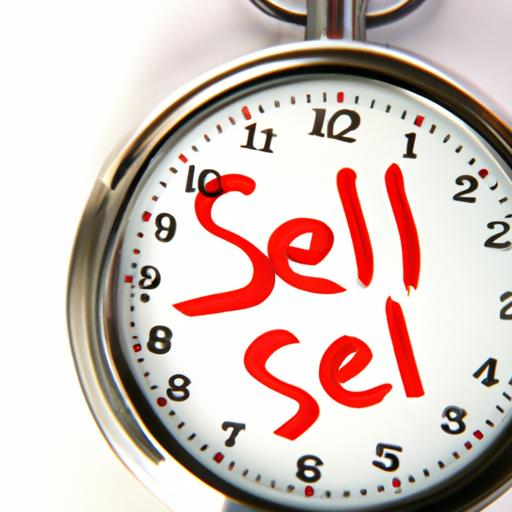Introduction
Mục lục

Have you ever wondered how long it takes to sell a business? Whether you’re a business owner considering selling your company or someone interested in buying a business, understanding the timeframe involved is crucial. Selling a business is not a decision to be taken lightly, and knowing what to expect can save you from unnecessary stress and frustration. In this article, we’ll delve into the factors that affect the time it takes to sell a business, the average timeframe you can expect, and some tips to expedite the process. So, let’s dive in!
Selling a business is not as simple as putting up a “For Sale” sign and waiting for buyers to flock in. It’s a complex process that requires careful planning, preparation, and execution. From determining the business’s value to finding potential buyers, negotiating the deal, and finally closing it, there are several crucial steps involved. Each of these steps takes time, and the overall timeframe can vary depending on various factors.
Understanding the time it takes to sell a business is crucial for both sellers and buyers. For sellers, it helps in setting realistic expectations and planning ahead. It allows them to allocate resources, ensure a smooth transition, and avoid any financial strains. On the other hand, buyers benefit from knowing the timeframe as it helps them plan their financing, conduct due diligence, and make informed decisions. So, whether you’re a seller or a buyer, having a clear understanding of how long it takes to sell a business is essential for a successful transaction.
In the next section, we’ll discuss the factors that can influence the timeframe to sell a business, so stay tuned!
Factors Affecting the Timeframe to Sell a Business

When it comes to selling a business, several factors come into play that can significantly impact the timeframe of the entire process. Let’s explore these factors in detail:
Market conditions and economic factors
The state of the market and the overall economic conditions can greatly influence how long it takes to sell a business. During periods of economic downturn or uncertainty, buyers may be more cautious and take longer to make purchasing decisions. On the other hand, a thriving market can attract more buyers, leading to a faster sale.
Industry-specific influences
Different industries have varying dynamics and demand levels. Some industries may be more attractive to buyers, resulting in a quicker sale, while others may require more time to find the right buyer who understands the industry’s nuances. Understanding the specific influences within your industry can give you a better idea of the timeframe involved.
Business size and complexity
The size and complexity of a business play a significant role in determining how long it takes to sell. Larger businesses with more extensive operations and a higher number of employees may require more time to complete due diligence and negotiate the terms of the sale. Similarly, businesses with complex ownership structures or legal issues may experience delays in the selling process.
Business valuation and asking price
The valuation of a business and the asking price set by the seller can impact the timeframe for a sale. Overpricing a business can deter potential buyers, leading to a prolonged listing period. Conversely, pricing a business too low may raise concerns about its value or potential issues. Setting a realistic and competitive asking price is crucial for attracting qualified buyers and expediting the sale.
Seller’s level of preparedness
A seller’s level of preparedness can significantly impact the time it takes to sell a business. Having all the necessary documentation, financial records, and legal paperwork readily available can streamline the due diligence process and build trust with potential buyers. Lack of preparedness can lead to delays and may even deter buyers from pursuing the deal.
Buyer’s financing and due diligence process
Buyers often rely on financing to acquire a business. The time it takes for them to secure financing can influence the overall timeframe of the sale. Additionally, the buyer’s due diligence process, where they thoroughly examine the business’s financials, operations, and legal matters, can also extend the time required to close the deal.
In the next section, we’ll explore the average timeframe it takes to sell a business, providing you with valuable insights into what you can expect. So, let’s keep going!
Average Timeframe to Sell a Business
When it comes to selling a business, one of the most common questions asked is, “How long does it take?” While there is no one-size-fits-all answer, we can provide you with some statistical data on the average length of time it takes to sell a business. However, it’s important to note that these numbers can vary based on the factors we discussed earlier.
According to industry research, the average timeframe to sell a business can range anywhere from six to twelve months. This timeframe includes all the necessary steps involved in the selling process, from initial preparation to closing the deal. However, it’s important to keep in mind that this is just an average, and your specific circumstances may lead to a shorter or longer duration.
Several factors can impact the time it takes to sell a business. As mentioned earlier, market conditions and economic factors play a significant role. During periods of economic downturn, it may take longer to find a buyer willing to invest. Additionally, industry-specific influences can affect the timeframe. For example, businesses in niche markets may take longer to find the right buyer.
The size and complexity of your business can also impact the selling timeframe. Larger businesses with more assets and employees may require more time for due diligence and negotiations. On the other hand, smaller businesses can sometimes be sold more quickly, especially if they’re in high-demand industries.
Lastly, the asking price and the seller’s level of preparedness can influence the timeframe. If the asking price is set at a reasonable and market-driven value, it may attract more potential buyers and expedite the process. Similarly, sellers who have their financials and documentation organized and ready can speed up due diligence and build trust with buyers.
Keep in mind that these factors interact with each other, and their combined effect determines the overall timeframe to sell a business. In the next section, we’ll explore the step-by-step process of selling a business, so you can have a better understanding of what to expect along the way.
Tips to Expedite the Sale Process
Selling a business can be a time-consuming endeavor, but there are strategies you can employ to expedite the process and increase your chances of a successful sale. Here are some valuable tips to help you navigate the sale process efficiently:
Setting a Realistic Asking Price
One of the most critical factors in selling a business quickly is setting a realistic asking price. Overpricing your business can lead to extended periods on the market and deter potential buyers. Conduct thorough research to determine the fair market value of your business and consult with professionals if needed. A well-priced business will attract more interest and generate serious inquiries.
Properly Preparing the Business for Sale
Before listing your business, take the time to ensure it is in optimal condition. Address any outstanding legal or financial issues, organize your financial documents, and make necessary improvements to enhance its appeal. Buyers are more likely to show interest in a well-prepared business that showcases its potential for growth and profitability.
Utilizing Effective Marketing and Advertising Strategies
To attract potential buyers, it’s essential to implement effective marketing and advertising strategies. Leverage online platforms, social media, and industry-specific websites to reach a wider audience. Craft compelling advertisements that highlight the unique selling points of your business, such as its profitability, customer base, or competitive advantage. Engaging visuals, persuasive language, and targeted marketing campaigns can significantly increase your visibility and generate qualified leads.
Engaging with Qualified Buyers
Screening potential buyers is crucial to ensure you are dealing with serious and qualified individuals. Requesting financial statements, conducting background checks, and requiring non-disclosure agreements can help filter out unqualified buyers and protect sensitive business information. Focusing your efforts on qualified buyers will save you time and streamline the negotiation process.
Seeking Professional Assistance from Business Brokers or Advisors
Navigating the complex process of selling a business can be daunting, especially for first-time sellers. Consider enlisting the help of experienced business brokers or advisors who specialize in facilitating business sales. Their expertise, extensive networks, and negotiation skills can significantly expedite the process and increase your chances of a successful transaction.
By implementing these tips, you can streamline the sale process and increase your chances of selling your business in a timely manner. Remember, preparation, realistic pricing, effective marketing, and professional assistance are key elements to ensure a smooth and efficient sale.
Stay tuned for the next section, where we’ll wrap up our discussion on how long it takes to sell a business.
Conclusion
In conclusion, understanding how long it takes to sell a business is vital for both sellers and buyers. Selling a business involves a complex process that requires careful planning, preparation, and execution. By being aware of the factors that can influence the timeframe, sellers can set realistic expectations and make necessary preparations to expedite the process. Buyers, on the other hand, can use this knowledge to plan their financing, conduct due diligence, and make informed decisions.
Throughout this article, we have explored the various factors that can affect the time it takes to sell a business. We discussed market conditions, industry-specific influences, business size and complexity, valuation, preparedness, and buyer-related factors. Each of these elements plays a crucial role in determining the length of the selling process.
Additionally, we outlined the essential steps involved in selling a business. From preparation and valuation to finding potential buyers, negotiating and reaching an agreement, conducting due diligence, and finally closing the deal, each step requires time and attention to detail.
To expedite the sale process, it is essential for sellers to set a realistic asking price, properly prepare the business for sale, utilize effective marketing strategies, engage with qualified buyers, and seek professional assistance when needed. By following these tips, sellers can enhance their chances of selling their business within a reasonable timeframe.
In conclusion, whether you are a seller or a buyer, understanding how long it takes to sell a business empowers you to make informed decisions and plan ahead. So, if you’re considering selling your business or looking to buy one, remember to factor in the time it takes and take the necessary steps to ensure a successful transaction.
Thank you for reading this article. For more insightful content on business-related topics, visit business.thietkesanvuonviet.com.
Conclusion: So above is the How Long Does It Take to Sell a Business? article. Hopefully with this article you can help you in life, always follow and read our good articles on the website: business.thietkesanvuonviet.com
/vuagolf.vnp-content/uploads/2023/03/golf-san-vuon.jpg)


